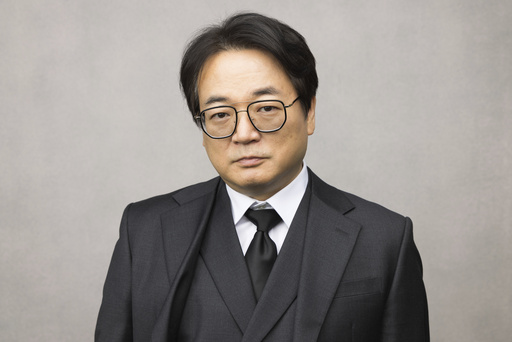Lee Jung-jae’s return to the set of “Squid Game” for its second season felt seamless, as if he had never departed. In a recent discussion, he reflected, “With promotions and everything, I spent about two years living as Gi-hun. It was as if I truly became him.”
The series revolves around a clandestine competition in South Korea, drawing in individuals struggling with debt who engage in seemingly innocent children’s games for financial rewards. However, the participants soon discover that the stakes are life or death once the games commence.
When it debuted in 2021, “Squid Game” skyrocketed to global fame, quickly becoming the most-seen series on Netflix. It garnered various awards, including Primetime Emmy Awards for Lee Jung-jae’s performance and Hwang Dong-hyuk’s direction. This unprecedented acclaim propelled Lee’s career, landing him roles at prestigious events like the Cannes Film Festival and marking his first English-speaking role in Disney+’s “The Acolyte” within the “Star Wars” franchise.
Upon receiving news about the second season from Netflix, Lee expressed skepticism regarding the timeline, recalling how it took Hwang years to create the initial season. He pondered, “How many years will it take him to compose the second season?” In an unexpected turn, Hwang astounded everyone, including himself, by crafting the scripts for both the second and a planned third season within just six months. “I doubt I’ll ever again write something that swiftly,” Hwang admitted.
Hwang found developing new characters and their backstories to be relatively straightforward. The primary challenge, he noted, was determining the future of Gi-hun. After reading the scripts, Lee praised Hwang’s brilliance, claiming, “He truly is a genius.”
It is uncommon for successful television series in Korea to extend beyond one season, making this endeavor a considerable risk, especially for the new cast members. Actor Yang Dong-geong, whose character makes his entrance in the second season, remarked caution, stating, “In Korea, there’s a saying that no sequel surpasses its predecessor.” The anticipation surrounding the new season is promising, as it has already received a nomination for best drama series at the forthcoming Golden Globe Awards.
For actors, taking part in a globally appealing project is a dream realized. Lee Byung-hun, reprising his role as the antagonist from the first season, has starred in high-profile English-language films like “G.I. Joe: The Rise of the Cobra” alongside Channing Tatum and Dennis Quaid and “Red 2” featuring Bruce Willis. He credits “Squid Game” for elevating his career to new heights. “I have been acting for over thirty years; perhaps many outside of Korea haven’t seen my previous works. If this series motivates them to explore more of my past projects, nothing would be more fulfilling or bring me greater joy,” he shared.
The auditioning process proved to be lengthy, with Jo Yu-ri reminiscing about the two-month wait between the initial and second round of auditions. When she eventually secured her role, she recalled, “I vividly remember crying.” Actors were instructed to maintain confidentiality regarding their casting until Netflix officially announced it. Yang shared, “A few close friends celebrated with champagne when they discovered I got the part.”
The “Squid Game” universe continues to expand, with a second season of a reality competition based on the series already ordered and an English adaptation in progress. Additionally, filming for the third season of the original series has concluded and is currently in post-production.
However, the upcoming season has sparked discussions due to the introduction of a transgender character portrayed by Park Sung-hoon. Hwang acknowledged that hiring a transgender actor would have been preferable, but he emphasized that the casting choices mirror the current societal perspective on the LGBTQ community and gender identity in Korea. “In Korea, the acceptance of LGBTQ and gender minorities is not as prevalent as in Western countries. Many of these groups remain marginalized, which is truly disheartening,” he expressed.
“When it comes to authentic casting for transgender characters, our pool of actors is unfortunately limited. We sought someone who could best embody the role. Ultimately, we found Park’s talent and interpretation made him an ideal choice for the character.” Hwang concluded.


